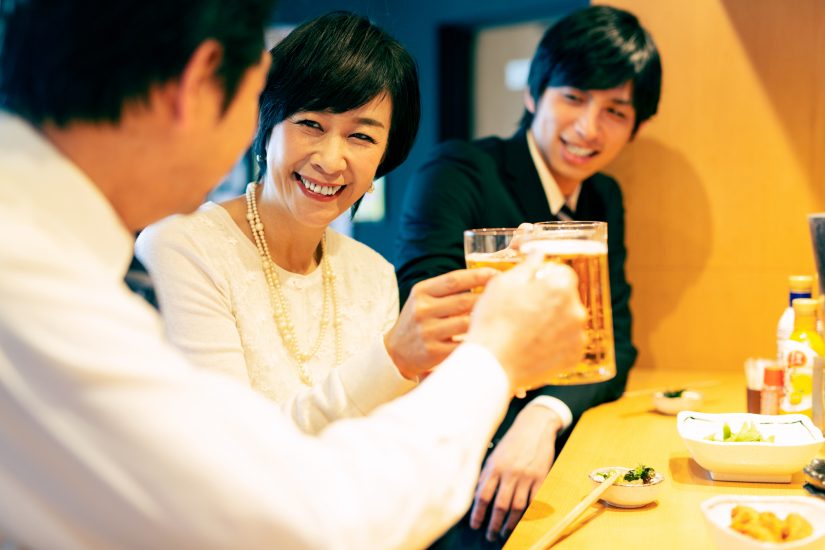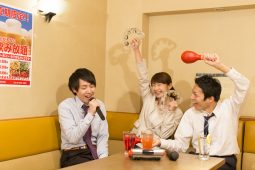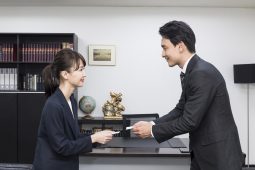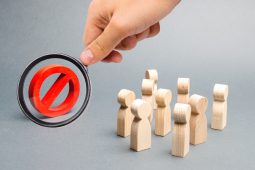Drinking parties with coworkers are called “nomikai” in Japan and they perform a very important social function within the company, reinforcing team spirit, and enabling colleagues to get to know each other in a more relaxed environment. Attending a nomikai is a good opportunity to develop and improve your relationships with your coworkers, but you need to do it right. Here are six basic social rules to follow when attending a nomikai, which will help you to fit right in.
1. Sit Near the Door
Nomikai are often held in a private room at a restaurant, or a separate screened-off section of an izakaya (a casual pub). New employees or younger members of staff are lower in the company’s social hierarchy, so they should sit near the entrance to the room. That way they can easily call for staff to get more drinks or order more food for the other members of the group. Also, because higher management figures will usually sit at the head of the table, if you sit near the entrance you won’t have to worry about having to make awkward conversation with your superiors before the drinks arrive.
2. Lower Your Glass for a Senior Kampai
When making the kampai toast with your coworkers, be sure to lower your glass just a fraction when you clink glasses with your senpai), or senior colleagues. It’s a small and subtle way of acknowledging their rank, and it will make a good impression. Don’t lower your glass too much though, as that will simply make you look clumsy. Lowering your glass just a little is enough to show your respect.
3. You Don’t Have to Drink Alcohol
It’s not a problem if you don’t usually drink alcohol. To be polite, many people will order an alcoholic drink to begin with, take a tiny sip for the kampai, and then switch to non-alcoholic beverages for the rest of the party. If you don’t wish to waste the first alcoholic drink you ordered, you can subtly pass it to a friendly coworker who can finish it off for you. If you really can’t drink even a sip of alcohol, then you should tell your coworkers and seniors prior to the party, “Geko nan desu,” which means “I am actually a non-drinker.” That way they won’t be surprised when you don’t drink at the party.
4. How to Pour a Drink
When pouring drinks for your coworkers you should use both hands. Hold the bottle or decanter with one hand and use your other hand to support it underneath. If you are pouring beer, hold the bottle so that the label is on top and can be seen. This kind of tiny attention to detail will make you look thoughtful as well as polite and create a very good impression.
5. How to Receive a Drink
When a senior colleague pours a drink for you, hold your cup or glass with both hands and express your thanks with the words “Arigatō gozaimasu. Itadakimasu.” Having received your drink, you should then take a drink before setting it down on the table again. If you are not drinking alcohol, then you will need to rehearse an appropriate excuse in order to refuse a drink politely. Using the following sentence should help you avoid any awkwardness: “Sekkaku desu ga, sukoshi demo osake nomu to, atama ga itaku narun desu” which means “I’m sorry, but if I drink even a little alcohol, I get a headache.”
6. Don’t Forget to Say ‘Thank You!’
It is highly likely that the senior member of the group will pay more when it is time to pay the restaurant bill. If they treat you, you should express your thanks at the time by saying “Gochisōsama deshita,” which basically means “Thank you for treating us.” It might also be a good idea to send them an email to express your gratitude the next day. You should also say thank you again when you see them at work. For example, if the nomikai took place on a Friday, you would say, “Kin-yōbi ha arigatō gozaimashita,” which means “Thank you for Friday night”.
These simple rules will help you to have a good nomikai and make a good impression among your colleagues. However, attending a nomikai is not just about rules, but about having a good time with your coworkers and getting to know them better. So relax, smile, and enjoy this fun aspect of Japanese culture!








